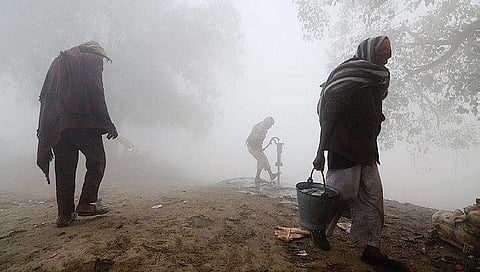

NEW DELHI: One of India’s premier educational institutions, the Indian Institute of Technology Delhi (IITD), will come up with a detailed plan for Centre to deal with the toxic air quality in the national capital. The institute’s Centre of Excellence for Research on Clean Air will take up research in Delhi-NCR region and is working closely with the Central Pollution Control Board (CPCB) in this regard.
“Round the year, several initiatives are taken to deal with the problem of air pollution, including a ban on construction activities, burning of crackers and restriction of outdoor activities in schools, to name a few. However, what is not realised is that suddenly suspending construction activities when air quality has already deteriorated to a certain level does not help much,” Mukesh Khare, Professor of Environmental Engineering at IIT Delhi, said.
“So, it is more advisable to implement measures beforehand. We are evaluating what should be the timing of what action regarding dealing with air pollution so there is a calendar sort of for the entire year,” said Khare, who is leading the evaluation team. According to Khare, the need for evaluating the timing of the actions was felt a few weeks after the National Clean Air Programme (NCAP) was launched.
NCAP is a mid-term, five-year action plan that includes coordination between relevant central ministries, state governments and local bodies.“The overall objective is comprehensive mitigation actions for prevention, control and abatement of air pollution, besides augmenting air quality monitoring network across the country and strengthening the awareness ...” Khare said.(With PTI inputs)